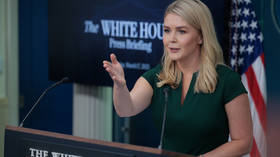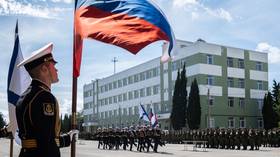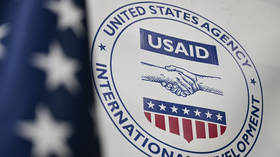“Leaked documents on Iraq have no special timing”
Iraq's prime minister says the latest WikiLeaks revelations are a move to derail his chances of forming a government by linking him to death squads.
The latest WikiLeaks files allege abuse by Iraqi security forces, some of which happened after Nouri al-Maliki became prime minister in 2006.
The premier's office denies he had death squads under his command, and suspects the timing of the military leak is to shake Maliki's fragile control. He is still yet to form a cabinet, despite it being seven months since the election.
Middle East specialist James Denselow from the London-based King's College does not believe the leak is specifically timed.
“I think that would be very doubtful to imagine that WikiLeaks and the soldiers responsible for giving these documents to them have the undermining of the Iraqi government in mind,” Denselow told RT.
“But I think the documents certainly do point to a particular problem with the prime-ministerial office in Iraq. Maliki – who is almost that close to the finishing lines it seemed to the moment with the relation to Iran and Syria confirming his role as the next prime minister – now seems that they have another hurdle to jump across.”
Judging by the Wikileaks revelations, the Iraqi security forces have very little legitimacy in the country and are implicated in the abuse of prisoners, said Chris Nineham, one of the National Officers of the Stop the War Coalition in the UK.
Iraq is deeply divided as a result of the US-led occupation, divided along communal and religious lines, so there is a massive tension between the Shiahs and the Sunnis, “which is a kind of front line in Iraqi society that is continuing to drive a very high level of sectarian violence.”
“The prospects for the ordinary people in Iraq look fairly bleak, unfortunately,” noted Chris Nineham.
Although Nouri Maliki said the leak had been aimed at undermining political stability in the country, he seems to be more concerned about his own political future, than about the fragile stability in Iraq, believes Martin Chulov, Middle East correspondent for “The Guardian”.
“He does have something to fear from a voting public that have been very reluctant to get him back into the top job,” Chulov told RT.
However, people already knew all those bad things that had happened in the war, and the WikiLeaks files do not appear to be a great surprise, he added.
Meanwhile, Former CIA officer Ray McGovern says with all the secret information now on the surface, it would be difficult for the Iraqi Prime Minister to keep the powers in his hands.
“What Maliki is afraid of are the disclosures that he has his own personal Gestapo. He has his own personal police force to take up and imprison his opponents. It's already out on the Baghdad streets, and whereas his opponents pretty much knew this was going on, now they have to deal with this publicly. And I suggest that this will make it far more difficult for Maliki or anybody else the US has anointed to form a government in Iraq.,” McGovern told RT.













